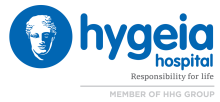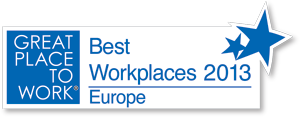- HYGEIA
- Vision & Mission
- Timeline
- Organizational structure
- Press Releases
- Social responsibility
- Awards and Distinctions
- Human Resources
- Scientific & Training activities
- Articles – Publications
- Our Facilities
- Magazines
- Healthcare Programs
- Doctors
- Services
- Medical Divisions & Services
- Imaging Divisions
- Departments
- Units
- Centers of Excellence
- Emergency – Outpatient
- Nursing Service
- Ambulances
- Patients
Our key priority is to provide services that safeguard the health of our patients. All practices and processes applied by the hospitals of the HYGEIA Group, in conjunction with the JCI international accreditation of HYGEIA Hospital, demonstrate our commitment to continue to improve the safety and the quality of the care provided to our patients.
From the moment the first coronavirus case was identified in Greece, the hospitals of the HYGEIA Group reacted immediately, implementing all the necessary measures in order to safeguard their facilities, thus protecting the health of their patients and employees.
The following protective measures are in place, in accordance with the guidelines issued by the World Health Organization, the Greek state and the National Public Health Organization (NPHO).
Infection Control Committee
The Infection Control Committee is up to date with the current developments, implementing all the necessary protective measures according to the World Health Organization, the Greek state and the National Public Health Organization (NPHO). It aims to ensure the safety of the patients, the visitors, and the employees.
For everyone’s safety
- All the Hospital departments and clinics operate according to the guidelines issued by the Greek Ministry of Health and the NPHO.
- The use of masks by the medical, the nursing and the administrative staff is necessary in all internal and external areas of the HYGEIA Hospital.
- Special banners and signs have been uploaded on the HYGEIA Hospital screens, informing visitors and patients.
- Since the beginning of the pandemic in Greece, the Hygeia Group has constant online updates concerning the latest medical developments with COVID-19.
What applies for visiting patients:
- One carer or visitor per patient.
- The carer or visitor, in order to enter the hospital, must be asymptomatic.
How is the test for the SARS-CoV-2 coronavirus performed?
With the outbreak of the SARS-CoV-2 pandemic, A-Lab, the HHG Molecular Biology and Genetics Center, has become a critical component of the process. Responding to the needs of all the hospitals of the HYGEIA Group, A-Lab immediately proceeded with providing molecular detection of the new virus strain, which is the only method that offers a fast and reliable result.
All samples collected at the hospitals of the HYGEIA Group are treated as potentially infectious and, consequently, all the necessary protective and spread preventive measures are applied throughout the processes of collecting, packaging, storage and sample transfer. The professionals participating in the entire sample management process wear personal protective equipment.
Triple packaging is used when transferring the clinical samples to the lab, which is located outside the hospital premises.
Real Time RT-PCR Method
Once the samples are received by the lab, the viral RNA is isolated and polymerase chain reaction with reverse transcription is applied to amplify two different targets of the SARS-CoV-2 viral genome. The test is concluded within 3 to 4 hours from the time the samples are received by the lab.
Find out more about SARS-CoV-2 coronavirus testing here
In admission:
- All patients who are going to be admitted urgently undergo a rapid antigen test (Rapid test).
- Sceduled admissions are made with a rapid antigen test (Rapid test).
During hospitalization:
All hospitalized patients are checked with a rapid antigenic test (Rapid test):
- Emergency on symptoms or if an urgent interventional procedure is performed.
- Before surgery, a rapid antigen test (Rapid test) is performed on the same morning of the operation as well as during the spirometry.
Outpatients:
- Patients who come for an examination either with a regular appointment or as an emergency (E.I.) are not testing for Covid-19, unless they show symptoms of a respiratory infection.
- Patients who are going to have a spirometry test undergo a 24-hour rapid test.
Outpatients of the One Day Clinic or Radiation Oncology Center
- All outpatients (Hematology, Oncology) who are going to be admitted for treatment at the ICU undergo a rapid antigen test (Rapid test).
- Asymptomatic radiotherapy patients undergo a rapid antigenic test (Rapid test) weekly until the end of their treatment. A rapid test is performed as an emergency based on symptoms.
- © 2007-2024 HYGEIA S.M.S.A.
- Personal Data Protection Policy
- COOKIES Policy
- Terms of Use
- Privacy Policy
- Credits
- Sitemap
- Made by minoanDesign
Ο ιστότοπoς μας χρησιμοποιεί cookies για να καταστήσει την περιήγηση όσο το δυνατόν πιο λειτουργική και για να συγκεντρώνει στατιστικά στοιχεία σχετικά με τη χρήση της. Αν θέλετε να λάβετε περισσότερες πληροφορίες πατήστε Περισσότερα ή για να αρνηθείτε να παράσχετε τη συγκατάθεσή σας για τα cookies, πατήστε Άρνηση. Συνεχίζοντας την περιήγηση σε αυτόν τον ιστότοπο, αποδέχεστε τα cookies μας.
Αποδοχή όλων Άρνηση όλων ΡυθμίσειςCookies ManagerΡυθμίσεις Cookies
Ο ιστότοπoς μας χρησιμοποιεί cookies για να καταστήσει την περιήγηση όσο το δυνατόν πιο λειτουργική και για να συγκεντρώνει στατιστικά στοιχεία σχετικά με τη χρήση της. Αν θέλετε να λάβετε περισσότερες πληροφορίες πατήστε Περισσότερα ή για να αρνηθείτε να παράσχετε τη συγκατάθεσή σας για τα cookies, πατήστε Άρνηση. Συνεχίζοντας την περιήγηση σε αυτόν τον ιστότοπο, αποδέχεστε τα cookies μας.






































